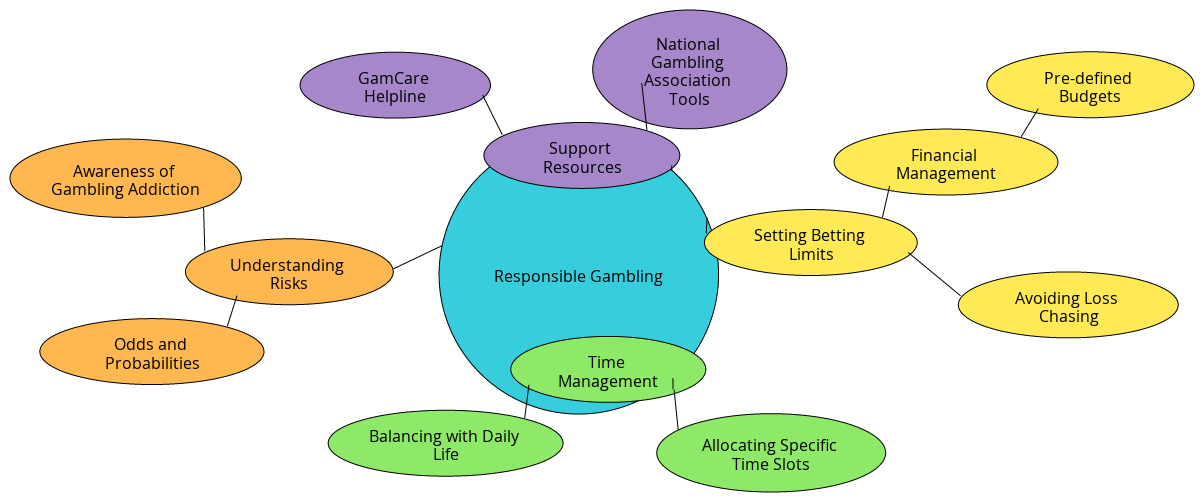
Understanding the Concept of Risk-Free Gambling
Risk-free gambling is a strategy aimed at minimizing potential losses while making informed decisions. While gambling inherently involves risk, adopting a “risk-free” mindset involves applying strategies to control spending and maximize enjoyment without expecting guaranteed profits.
Key Points to Cover:
- Expert Definitions: Define risk-free gambling as managing risks rather than eliminating them entirely.
- Industry Insights: Discuss how responsible gambling practices align with reducing financial and emotional risks.
- Examples of Risk Management Strategies: Cover bankroll management, setting limits, and practicing in demo modes.
How to Set a Gambling Budget and Stick to It
Establishing a gambling budget is essential for responsible play. This section will guide readers on creating and adhering to a budget, ensuring they only bet money they can afford to lose.
Key Points to Cover:
- Expert Tips: Recommendations from financial advisors on managing discretionary income.
- Tools for Tracking Spending: Apps and worksheets for monitoring gambling expenses.
- Budgeting Plans: Examples of how to allocate funds effectively.
Choosing Licensed and Regulated Platforms
Using licensed and regulated platforms ensures fairness, safety, and compliance with gambling laws. This section emphasizes the importance of verifying the legitimacy of online casinos or sportsbooks.
Key Points to Cover:
- Trusted Licensing Authorities: Overview of organizations like UKGC, MGA, and local regulators.
- Examples of Regulated Platforms: Highlight platforms known for transparency and fair play.
- Benefits of Regulation: Explain how licensing protects user funds and ensures fair odds.
Taking Advantage of Welcome Bonuses and Promotions
Promotions like no-deposit bonuses and free bets can enhance the gambling experience, but understanding their terms is vital. This section explains how to use them effectively.
Key Points to Cover:
- Legitimate Promotions: Examples of trustworthy offers.
- Bonus Terms Analysis: Guide readers on spotting fair wagering requirements.
- User Experiences: Testimonials about leveraging bonuses successfully.
Learning the Games Before Betting Real Money
Understanding the rules and strategies of games is crucial before wagering. This section emphasizes the value of practicing in demo modes or free play.
Key Points to Cover:
- Expert Recommendations: Advice on the best games to practice.
- Educational Resources: Links to tutorials and guides for popular games.
- Benefits of Free Play: Highlight risk-free opportunities to learn.
The Role of Self-Control in Risk-Free Gambling
Self-control is vital in gambling to avoid chasing losses or acting on emotions. This section delves into psychological strategies for maintaining discipline.
Key Points to Cover:
- Psychologist Commentary: Insights on managing impulses and emotions.
- Tips for Staying Disciplined: Setting limits, taking breaks, and knowing when to stop.
- Real-World Examples: Success stories of disciplined gambling practices.
Using Strategies to Minimize Risks
This section focuses on strategies tailored to specific games, helping players reduce losses while optimizing their chances of winning.
Key Points to Cover:
- Game-Specific Strategies: Bankroll management for poker, low-stakes slots, etc.
- Visual Comparisons: Tables or charts detailing risk levels.
- Expert Opinions: Evaluations of strategy effectiveness.
Avoiding Common Gambling Pitfalls
Mistakes like betting under the influence or relying on luck can lead to significant losses. This section identifies pitfalls and provides actionable solutions.
Key Points to Cover:
- Common Mistakes: Highlight frequent errors gamblers make.
- Real-World Consequences: Case studies or testimonials about pitfalls.
- Avoidance Tips: Practical advice for smarter gambling.
Understanding Odds and Probabilities
Educating readers about odds and probabilities helps them make informed decisions while gambling.
Key Points to Cover:
- Explaining Odds: Simplify concepts like house edge and RTP.
- Infographics: Visual aids for understanding odds and probabilities.
- Practical Examples: Real-life scenarios of odds in action.
The Importance of Taking Breaks and Setting Time Limits
Maintaining balance is essential to prevent gambling from becoming overwhelming. This section discusses the value of setting limits and taking breaks.
Key Points to Cover:
- Health Expert Tips: Advice on avoiding burnout.
- Time Management Tools: Apps for tracking gambling activity.
- Balancing Strategies: Techniques for incorporating breaks.
Tools and Resources for Responsible Gambling
Introduce tools like self-exclusion programs and helplines to promote responsible gambling practices.
Key Points to Cover:
- List of Resources: GamCare, BeGambleAware, and local support initiatives.
- Tool Descriptions: How deposit limits and exclusion programs work.
- Links to Resources: Direct access to trusted organizations.
When to Seek Help: Recognizing Problem Gambling
Help readers identify signs of problem gambling and encourage them to seek help when needed.
Key Points to Cover:
- Signs of Problem Gambling: Red flags to watch for.
- Expert Advice: Insights from mental health professionals.
- Support Options: Contact details for helplines and testimonials from those who sought help.